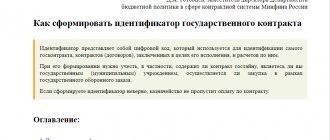Posted by Law firm Shmeleva and Partners
in International disputes
1 571
Support for international transactions is a service in demand among companies and individuals who often enter into contracts with foreign partners. Support for international transactions is necessary due to the complexity of concluding international contracts. After all, this kind of transaction is regulated by the Russian legislation of the country with which the contract is concluded. To ensure legal protection not only for yourself, but also for your partners, you need the help of an arbitration lawyer.
Before we look at supporting international transactions, let's understand how international transactions differ from domestic transactions.
What are international transactions? What are the distinctive features of domestic transactions?
An international transaction is a contract in which one or more participants are a representative of a foreign state.
When scaling their business, companies and individuals often have to enter into international contracts and conduct cross-border transfers.
International transactions, in contrast to domestic transactions, have the following distinctive features:
- Sending or receiving is carried out outside of Russia. The currency of the transaction is not the one in which the current account was opened at the bank.
- Conducted abroad in Russia in the national currency of the Russian Federation (rubles).
- They are carried out in Russia, but addressed to companies that are serviced by foreign banks. This category also includes purchases from global online stores like Aliexpress.
Transfer fees for international transactions are much higher when compared to fees for domestic transactions. After all, banks have to cover large costs for international transfers - they need to pay commissions of payment systems and acquiring banks.
Package offers for foreign trade participants:
| Package No. 1 “Preliminary analysis” | Price |
| 24,000 rub. |
| Package No. 2 “Pre-trial settlement” | Price |
| RUB 34,000 |
| Package No. 3 “Judicial Settlement” | Price |
| 68,000 rub. |
Types of international transactions
International transactions are divided into several types. By the number of participants they are as follows:
- One-sided. The foreign partner does not directly participate, but transfers the right to represent his interests to a person acting in the legal field of Russia.
- Double-sided. One of the participants is a foreign partner. These include sales and purchase agreements, import and export transactions.
- Multilateral. These include large investment programs and joint projects. One participant is a representative of Russian business, and the other (or others) are a foreign state.
Based on profit, contracts are divided into 2 types:
- Paid. They represent the provision of a service for a fee, which is agreed upon in advance in the contract. An example is the delivery of a batch of products for a certain cost.
- Gratuitous. They provide free services - financial assistance, investment.
The type of services provided divides the transactions:
- for buying and selling;
- provision of transport services;
- provision of communication services;
- joint work in the field of intellectual property;
- cooperation in industry, construction business;
- agricultural cooperation.
There are 4 types of international transactions for the entities involved in the transaction:
- Interstate. They are formalized at the level of the leaders of the participating countries.
- Intergovernmental. Issued at the government level.
- Interdepartmental. They are concluded at the level of individual departments or individuals/legal entities representing them.
- Private. The simplest and most frequently used international transactions.
Based on the region of impact, contracts are divided into 4 types:
- Worldwide. Many states from different continents and regions participate in them.
- Continental. Issued within the same continent.
- Regional. Conducted within the same region.
- Subregional. They are located in a certain part of the region.
Practice shows that if there is a minimum geographical distance between states, then the number of transactions between their subjects is maximum.
According to the form of contracts, transactions are divided into commercial contracts, agreements, regulations, and international cooperation programs.
We guarantee:
- confidentiality
- individual approach,
- thorough analysis of documents
- expert knowledge of foreign trade practices
- constant legal support
- reasonable price
A foreign trade lawyer who will represent your interests in the future will conduct a free preliminary analysis of documents on a specific issue, assess the expected risks and provide recommendations for further actions. To do this, you just need to send copies of documents to the contacts indicated at the bottom of the page and explain the essence of the problem.
Support of international transactions - procedure
Supporting international transactions is a more complex procedure, in contrast to ordinary contracts, where all participants are representatives of one state. Indeed, in this case, it is necessary to take into account the laws of both the Russian Federation and the country whose representatives the other participants are.
You also need to consider:
- default currency;
- methods for resolving disputes, jurisdiction of such cases;
- the advantages of the law of one country over the law of another.
A lawyer on international issues must also be a mandatory participant in such a transaction. Without providing professional support for international transactions, there is a risk of incurring significant losses.
The procedure for supporting an international contract itself consists of the following stages:
- Organization of negotiations between participants. Their task is to agree on all the features and nuances of the procedure and come to a common decision. The parties must decide on what principle their future cooperation will be based on.
- Writing the text of the contract. When drawing it up, it is necessary to take into account the interests of all participants, as well as their positions and agreements reached. If necessary, the contract is translated into a foreign language. In the future, the translation must be certified by an employee of a notary agency: this will prove that the translation corresponds to the original text.
- Studying the legislative norms and requirements of all states whose representatives are involved in the transaction. It is important to ensure that the laws of any participating country do not contradict any issues raised therein that relate to mutual settlements, taxes, international supplies of products and the provision of services.
- Translation of documents, their legalization. It is necessary to translate documents for concluding an international transaction into the languages of all countries whose representatives are participating in the procedure. In addition to the translation, it is important to legalize it - that is, notarize it. A professional lawyer on international relations will inform you about the package of required documents and assist in their preparation.
- Selecting the method of mutual settlements between the parties to the transaction. You will need to wisely choose a currency and a bank that has all the necessary powers to conduct such transactions. It is also important that the bank is reliable and convenient for all participants in the procedure.
- Registration. Cross-border transactions require registration with government agencies and state registers. The lawyer will tell you how to register the contract and formalize it.
A foreign trade contract is concluded in writing in two languages. It must contain the following information:
- Subject of the agreement.
It is necessary to indicate in the text of the document the name of the supplied product and its quantity, size, model, country of origin. This can be stated not only in the contract, but also in the specifications for it.
We recommend reading: International disputes: procedure for consideration and resolution of disputes
You should take into account the lists of goods prohibited for import into the territory of the Russian Federation. If this restriction is violated, the company will be held administratively liable with confiscation of the goods.
The fine for a legal entity is 50-300 thousand rubles.
- Product quality parameters.
The quality of the goods must be confirmed by relevant documents. For petroleum products, the role of such a document is played by a quality passport containing values obtained during laboratory tests.
- Contract value.
Customs payments are calculated on its basis. Price premiums are often indicated - for individual orders, increased product quality.
If the value of a contract for imports exceeds 3 million rubles, and for exports exceeds 6 million rubles, then the contract is registered with an authorized bank - it is through its account that all settlements must be made (except for settlements with a non-resident bank).
- Payment order.
You can specify in the contract a full advance, deferred payment, or payment for goods in stages.
- Product delivery time.
It is necessary to specify delivery dates for products and responsibility for their failure.
- Terms of delivery of goods.
It should be indicated who is responsible for transporting the goods, at whose expense the transportation is carried out, and how the sellers will label and package the products.
It is necessary to consider issues related to cargo insurance, preparation of commercial documents, establishing the place and time of transfer of risks of unintentional damage or loss of products from the seller to the buyer.
- Other conditions.
This clause includes the consideration of disputes if one of the parties has not fulfilled its obligations.
You cannot do without professional advice from an international lawyer at any stage of international cooperation.
Get legal advice
An international law lawyer will provide competent support for international transactions, which in turn leads to safe, mutually beneficial settlements and other transactions.
Requirements for details and form of a foreign trade contract
By letter of the Central Bank of the Russian Federation dated July 15, 1996 No. 300 “On recommendations on the minimum requirements for mandatory details and the form of foreign trade contracts,” the recommendations were brought to the attention of authorized banks. Banks, in turn, should familiarize their clients - participants in foreign trade activities - with them and recommend that they be guided by them when concluding export-import transactions.
In accordance with the recommendations, it is advisable to indicate in a foreign trade contract a unified contract number consisting of three groups of characters.
The first group of characters must consist of two letters or three numbers corresponding to the country code of the Buyer (Seller) according to the international classifier “Countries of the World” used for customs clearance purposes.
The second group of characters must consist of eight digits that make up the code of the Buyer’s (Seller’s) organization in accordance with the All-Russian Classifier “Enterprises and Organizations” (hereinafter OKPO).
The third group of characters must consist of five digits, representing the serial number of the document at the level of the Buyer's (Seller's) organization.
The date of signing the contract is drawn up as follows: DD.MM.YY, where the first pair of digits is the day, the second pair of digits is the month, the third pair of digits is the last two digits of the year.
The contract must also indicate the place of signing the contract, the full official names of the organizations of the Seller and the Buyer, the full name of the country of the foreign partner and the country of destination of the goods and their three-digit code in accordance with the international classifier “Countries of the World”.
What is the volume of international transactions with the participation of the Russian Federation and how does this affect the country’s economy?
Russia's foreign trade turnover at the end of 2021 in China amounted to more than $92 billion, in Germany - more than $17 billion, in the Netherlands - more than $7 billion. The largest increase in trade turnover was observed with China - in 2019-2020 there was an increase of 4.7%.
You can download and view the official report on Russian foreign trade: Russian foreign trade in 2017-2019. (according to the Federal Customs Service of Russia)
A positive trend is also observed in cooperation with the United States – +18.7% ($3.8 billion). China, along with Germany and the Netherlands, continues to remain in the TOP 3 partners of Russia.
At the same time, the largest decrease in the volume of transactions at the end of 2021 was observed with the Netherlands – the turnover amounted to $5.6 billion, which is 30.5% less than in previous years.
It is expected that in the next 10 years, China and Asian countries will be the main direction of foreign trade activities of the Russian Federation.
The involvement of France, Germany and Italy in investment projects with the Russian Federation will ensure bilateral trade despite possible new sanctions. The US also plans to maintain its position in trade with Russia. Expansion of trade with regions of Africa and Latin America is unlikely.
Russian foreign trade, like other countries, has been negatively affected by the COVID-19 pandemic, causing an economic shock comparable to 2009 and 2015.
Most governments have taken steps to restore the economy, but uncertainty about future economic developments remains.
At the same time, Russia’s foreign trade surplus at the end of 2020 exceeded negative forecasts - supplies of food and precious metals increased by 50%.
The foreign trade balance remains positive, as before, which provides a positive field for cooperation with foreign partners.
Can a government block an international deal?
Legislative requirements in the Russian Federation change frequently. A timely contact with an international lawyer will help you always be aware of current changes and receive qualified assistance at any stage of concluding a foreign trade agreement.
Contact an international lawyer
Under the conditions of sanctions against the Russian Federation and retaliatory sanctions of the Russian Federation, the conclusion of agreements becomes much more difficult. Before entering into a contractual relationship, a market participant must understand whether its counterparty or subject of cooperation is subject to sanctions.
If it concerns sanctions that apply against the Russian Federation, then issues of compliance with laws will be of greater concern to foreign counterparties: serious liability is provided for violating the sanctions regime in the US and EU countries.
At the same time, it is necessary for a representative of the Russian Federation to be careful, because even if a foreign counterparty takes a risk and decides not to fulfill the requirements of the agreement, it will be almost impossible to force him to do this or hold him accountable.
If controversial situations arise, certain sanctions may be regarded as force majeure circumstances. Under most contracts, the interested party is obliged to inform the counterparty of the occurrence of force majeure, as a result of which it receives grounds for disclaiming responsibility for unfulfilled obligations. Most often, the period allotted for informing the counterparty is quite short.
As for the sanctions imposed by Russia, the possibility of fulfilling contractual terms depends on the customs control authorities of the Russian Federation. Even if the buyer has received a positive court or arbitration decision, this does not provide him with a guarantee that it will be fulfilled.
If a foreign importer, acting in good faith or following a court decision, tries to import a product that is subject to sanctions into the territory of the Russian Federation, then this product will be detained at the border. That is, the fulfillment of contractual terms does not depend on the will of the parties.
It is necessary to indicate in the contract a reference to force majeure with further termination of the contract or termination of the contract due to the inability to fulfill its terms.
A lawyer who provides support for international transactions will help you correctly draw up an agreement and include in it all the conditions that protect both Russian and foreign participants.
We recommend reading: International commercial contract - procedure for concluding and resolving disputes
Termination of a foreign economic contract
In international practice, situations often arise when one of the parties to a contract does not fulfill it in whole or in part, or performs it improperly. In this case, the other party to the contract finds itself in conditions where it is forced to declare termination of the contract and compensation for the losses incurred by the guilty party. The injured party, unilaterally terminating the contract, does not always act lawfully, since unilateral termination of the contract is possible only in accordance with the terms of the contract, if any were agreed upon when concluding the contract, or in accordance with the law. Otherwise, a unilateral refusal of the contract may be considered unfounded by the court.
Which transfers are cross-border? How are the operations carried out?
Cross-border transfer is a transfer in which the payer or recipient of funds is located outside the Russian Federation.
Also included in this category are:
- transfers during which the payer or recipient of funds is serviced by a non-resident bank of the Russian Federation;
- transfers within the country of incorporation of a non-resident bank of the Russian Federation;
- transfers between specified banks.
Cross-border transfers are carried out in accordance with the legislation of the Russian Federation and taking into account the requirements of the national legislation of a non-resident bank of the Russian Federation.
Features of money transfers between individuals
Individuals (residents of the Russian Federation) have the right to send payments from Russia abroad both in national currency (rubles) and in foreign currency.
When payments are made in foreign currency, there are no restrictions on transfers between relatives.
For other individuals there are limits - up to $5,000 (or an equivalent amount) per one transaction day.
If the money is transferred to a personal account that is serviced abroad, then there are no restrictions. The main thing is to send the appropriate notification to the tax authority at the place of registration.
As for money transfers in the national currency of the Russian Federation, if an individual has an account abroad, there are no restrictions, and if not, up to $5,000 (or an equivalent amount).
When individuals receive funds from abroad from residents or non-residents, there are no restrictions.
But if it is impossible to prove the origin of the funds, then the bank has the right to suspend services.
Such movements of funds in any direction acquire signs of money laundering and illegal capital export operations. The average amount of cross-border transfer from the Russian Federation is $200.
If payments are made to the same person on a regular basis, and they are much larger than the specified amount, and the money goes to the account of a resident of Latvia, the USA, Great Britain or Switzerland, then the authorized authorities will pay special attention to such transfers.
Since July 2021, Federal Law No. 115-FZ has been in force in the Russian Federation, aimed against laundering proceeds from crime and the financing of terrorism. For this reason, payments made through international transfer systems (like PayPal, Migom, etc.) are under the control of authorized authorities. This was not always the case - until 2021, such payments were not controlled.
Features of money transfers between legal entities
Firms, companies and organizations also have the opportunity to make cross-border payments, but in this case the volume of obligations increases.
When making transactions in foreign currency to and from Russia, organizations must provide the bank that made the payment with a document justifying the transaction within the next 30 days.
As such a document, you can use, for example, copies of contracts that indicate the terms of payment for goods/services. Next, this bank informs the Central Bank of the Russian Federation about the payment. Representatives of the Central Bank of the Russian Federation take control of these operations.
A similar obligation also affects other types of expenses - entertainment, travel expenses.
Completed projects
Legal support for foreign trade activities
St. Petersburg customs, 2.5 years after the release of goods, decided to classify the goods and make changes to the information in the declarations for goods. Lawyers from KG ETALON appealed the decisions of the customs authority in court. The court of first instance refused to satisfy the demands. The appellate court overturned the decision of the lower court in its entirety and adopted a ruling on ... Read more
Legal support for foreign trade activities
The Moscow Regional Customs made decisions to adjust the customs value of goods declared in the goods declarations of the importer of medical products. Lawyers from KG ETALON appealed the decisions of the customs authority to the arbitration court. Based on the results of the work carried out, the court decided to oblige the customs authority to return the amounts of overpaid customs duties to the Principal KG ETALON. During the… Read more
all projects
Do you need support for international transactions?
An international transaction is a contract concluded with a partner located outside the Russian Federation. The conclusion of such agreements requires taking into account not only Russian, but also foreign legislation.
Often the matter is complicated by foreign and retaliatory sanctions, as a result of which there is a risk of failure of agreements. It is also necessary to take into account the list of goods that are prohibited from being imported into the territory of the Russian Federation: if this prohibition is violated, the company will face administrative liability.
Legal support of international transactions is mandatory. The lawyer will advise you on the procedure, tell you what documents need to be prepared and how to fill them out correctly, and which government agencies you need to contact to register the agreement.
By turning to an international affairs lawyer for help, you will prevent problems and troubles in the legal field of both Russia and other states involved in cooperation.
Get legal advice
Also, our lawyers will help resolve an international dispute if it arises. Our lawyers have extensive practical experience in resolving these types of issues.
Legal article from:
Customs regulation
The Federal Customs Service of the Russian Federation is an executive body of state power that promotes the development of foreign trade relations, as well as creating the necessary conditions for accelerating trade turnover when exporting/importing goods across the border.
The procedure for moving goods across the customs border is regulated by the law of the Eurasian Economic Union, the legislation of the Russian Federation in the field of customs, and in terms of taxation - by the Tax Code of the Russian Federation.
When interacting with customs authorities, you may encounter certain difficulties on your own. If not all documentation is completed correctly or is not presented in full, or established procedures are not followed, there is a risk of incurring additional financial and time costs.
An important aspect of the movement of goods across the customs border is compliance with the prohibitions and restrictions established at the legislative level.
When moving goods between the countries of the Eurasian Economic Union, it is necessary to correctly and timely fill out and submit a statistical form for the movement of goods. Administrative liability is provided for failure to submit reports within the prescribed period.
In addition, quite often problems arise when choosing a scheme for going through procedures for importing or exporting goods, and therefore there is a high risk of initiating an administrative or criminal case, depending on the circumstances of the case.
According to official information of the Federal Customs Service, the majority of cases of administrative offenses were initiated in connection with violations in the field of customs affairs (Chapter 16 of the Code of Administrative Offenses of the Russian Federation) - 73,464 cases. Of these, 22.5% of the total number of cases are for non-declaration or false declaration of goods (Article 16.2 of the Code of Administrative Offenses of the Russian Federation); 9.8% of cases - for non-compliance with prohibitions or restrictions on the import/export of goods (Article 16.3 of the Code of Administrative Offenses of the Russian Federation), for violations of currency legislation (Article 15.25 of the Code of Administrative Offenses of the Russian Federation) – 9.7% of cases.
This fact cannot be ignored if you want to avoid the above negative consequences. Participants in foreign trade activities should promptly contact a customs lawyer for qualified assistance.









